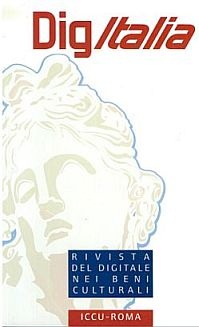Il Deposito legale nell’Istituto centrale per i beni sonori ed audiovisivi: dalle norme del 1939 all’accordo con la Società Consortile Fonografici (SCF)
Keywords:
Istituto, Centrale, Beni, Sonori, Audiovisivi, Musica, Deposito, Legale, ICBS, Società, Consortile, Fonografici, SCFAbstract
In Italia, l’esigenza di provvedere alla stesura di una norma sul deposito legale in grado di dare definitiva sistematizzazione all’attività di raccolta della produzione editoriale italiana a livello nazionale determinò la legge 2 febbraio 1939, n. 374 contenente le norme per la consegna obbligatoria di esemplari degli stampatie delle pubblicazioni.
Collegata a quella norma la legge 2 febbraio 1939, n.467 relativa al riordinamento della Discoteca di Stato e all’istituzione di una speciale censura sui nuovi testi originali da incidersi sui dischi, ampliava, sia pur indirettamente, il principio di deposito legale anche alla produzione discografica nazionale.
Downloads
Download data is not yet available.
Downloads
Published
2010-02-14
How to Cite
Pistacchi, M. (2010). Il Deposito legale nell’Istituto centrale per i beni sonori ed audiovisivi: dalle norme del 1939 all’accordo con la Società Consortile Fonografici (SCF). DigItalia, 5(1), 123–129. Retrieved from https://digitalia.cultura.gov.it/article/view/260
Issue
Section
Projects
License
The Authors publishing their contributions on this journal agree to the following conditions:
- The Authors detain intellectual property rights of their work and transfer the right of first publication of the work to the journal, under the following Licence: Attribution-ShareAlike 3.0 Italy (CC BY-SA 3.0 IT). This Licence allows third parties to share the work by attributing it to the Authors and clarifying that the work has been first published on this journal.
- Authors can sign other, non-exclusive licence agreements for the dissemination of the published word (e.g. to deposit it in an institutional archive or publish it in a monography), provided that they state that the work has been first published on this journal.
- Authors can disseminate their work online (e.g. in institutional repositories or on their personal websites) after its publication, to potentially enhance knowledge sharing, foster productive intellectual exchange and increase citations (see The Effect of Open Access).






